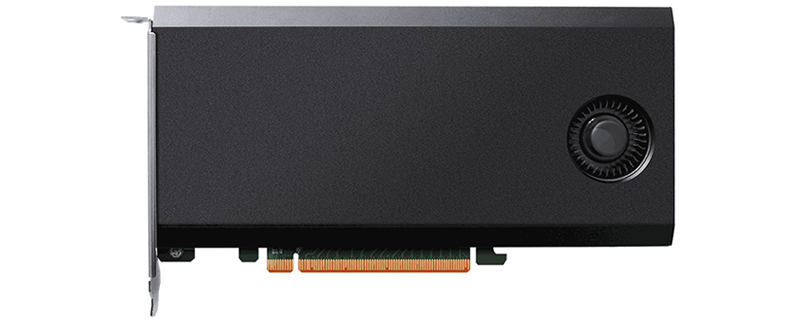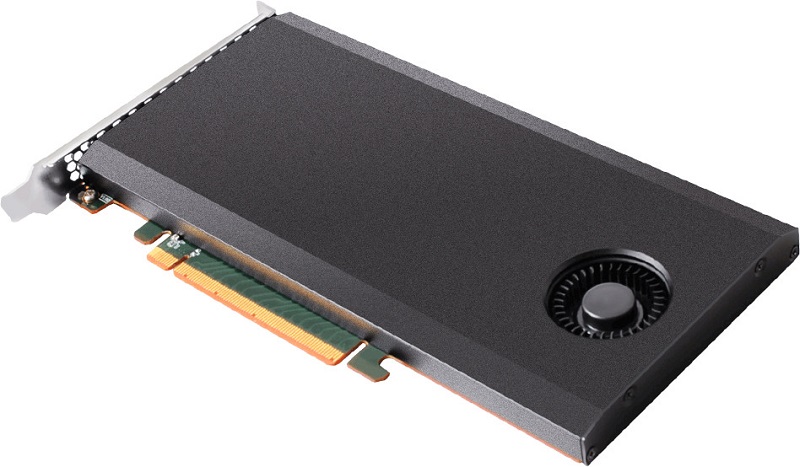
HighPoint introduce their SSD7101 series of PCIe 3.0 16x NVMe RAID SSDs
Â
Modern M.2 NVMe SSDs are fast, but there will always be those that need to push the system storage performance envelope with RAID configurations and the latest and greatest PCIe SSDs. Â
Â
Today most motherboards offer a limited number of M.2 slots, which are often restricted in such a way that makes M.2 RAID configurations difficult to build/use, especially when using more than two M.2 storage devices. HighPoint, a popular creator of workstation grade storage solutions, has now announced their new SSD7101 series of PCIe 3.0 x16 NVMe RAID SSDs, which can use up to four NVMe SSDs in RAID 0, 1 or 5 to offer some insane levels of storage performance.Â
Â
This new series of SSDs will come with up to four Samsung 960 series SSDs build into the device, with the SSD7101A featuring Samsung 960 Evo series SSDs and the SSD7101B using Samsung 960 Pro series SSDs. These new SSDs will offer sequential read/write speeds of 13000MBps/7500MB/s and 13500MBps/8000MBps respectively, with the SSB7101B offering 33% higher levels of endurance. Â
Â
Users of this SSD will be able to halve the capacity and double the endurance of this SSD by running n RAID 1 mode, with each SSD in this unit coming with an aluminium fin cooling solution that is cooled by the SSD7101’s single fan.Â
 Â

Â
The Samsung 960 Evo based SSD7101A will come with capacities of 500GB (2x 250GB), 1TB (4x 250GB), 2 TB (4x 500GB), and 4TB (4x 1TB), with the Samsung 960 Pro-based SSD7101B coming with capacities of 1TB (4x 250GB), 2TB (4x 500GB), 4 TB (4x 1TB), and 8 TB (4x 2TB).Â
Highpoint has not released the pricing of these new NVMe SSDs, though more information is expected to be revealed at Computex 2017. Â
Â
You can join the discussion on HighPoint’s new SSD7101 series of RAIDed M.2 SSDs on the OC3D Forums. Â
 Â

HighPoint introduce their SSD7101 series of PCIe 3.0 16x NVMe RAID SSDs
Â
Modern M.2 NVMe SSDs are fast, but there will always be those that need to push the system storage performance envelope with RAID configurations and the latest and greatest PCIe SSDs. Â
Â
Today most motherboards offer a limited number of M.2 slots, which are often restricted in such a way that makes M.2 RAID configurations difficult to build/use, especially when using more than two M.2 storage devices. HighPoint, a popular creator of workstation grade storage solutions, has now announced their new SSD7101 series of PCIe 3.0 x16 NVMe RAID SSDs, which can use up to four NVMe SSDs in RAID 0, 1 or 5 to offer some insane levels of storage performance.Â
Â
This new series of SSDs will come with up to four Samsung 960 series SSDs build into the device, with the SSD7101A featuring Samsung 960 Evo series SSDs and the SSD7101B using Samsung 960 Pro series SSDs. These new SSDs will offer sequential read/write speeds of 13000MBps/7500MB/s and 13500MBps/8000MBps respectively, with the SSB7101B offering 33% higher levels of endurance. Â
Â
Users of this SSD will be able to halve the capacity and double the endurance of this SSD by running n RAID 1 mode, with each SSD in this unit coming with an aluminium fin cooling solution that is cooled by the SSD7101’s single fan.Â
 Â

Â
The Samsung 960 Evo based SSD7101A will come with capacities of 500GB (2x 250GB), 1TB (4x 250GB), 2 TB (4x 500GB), and 4TB (4x 1TB), with the Samsung 960 Pro-based SSD7101B coming with capacities of 1TB (4x 250GB), 2TB (4x 500GB), 4 TB (4x 1TB), and 8 TB (4x 2TB).Â
Highpoint has not released the pricing of these new NVMe SSDs, though more information is expected to be revealed at Computex 2017. Â
Â
You can join the discussion on HighPoint’s new SSD7101 series of RAIDed M.2 SSDs on the OC3D Forums. Â
 Â




